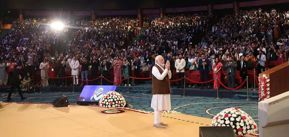Faiqa Mansab
THERE are few feminist icons in Pakistan, fewer still who embrace their sexuality as openly and fearlessly as Qandeel Baloch did. People often question her status as a feminist icon because she wasn’t as educated as the other feminists they know. They ask — what could a simple girl from a small village know of feminism? One answer is that one doesn’t have to have read feminist theory to be one. One doesn’t need to have a formal education even, to be a feminist. Simply defined, feminism is the advocacy of women's rights on the ground of the equality of the sexes, the right to be equal as a human being, to have the right to make your own independent choices. Qandeel fought for her right to live her life on her terms and for a brief period in her short life, she won. Perhaps that is why she wasn’t forgiven or allowed to live.
Others posit that sexual liberation is not necessarily about being feminist, rather it is another form of patriarchal subjugation (be thin, be sexy, be available — ostensibly for men). A valid point, no doubt, but the sad reality of our times is that embracing one’s sexuality is still an act of rebellion and courage.
Qandeel’s life and death unmasked the dichotomy of Pakistan’s social reality.
She had the temerity to pose with Mullah Abdul Qavi with his cap on her head, her mouth open, as if mocking him and the society that accorded him more respect than her for no better reason than that he called himself an Islamic scholar. That proved to be the most iconoclastic moment of her life. She merged the philosophical, abstract notion of social and religious hypocrisy and crystallised it into an image, a name, a picture. Qazi was sacked from a high-profile Islamic committee and received overwhelming criticism nationally.
But it was not a hundredth of what Qandeel had to face. Her ‘true’ identity (and like feminism, identity is a politically charged term) was revealed after this scandal and her family, who still lived in a small village near Multan received the full weight of patriarchal disapproval. They were shamed and ostracised for not being able to ‘control’ Qandeel, who had made a name for herself on social media by posting provocative videos of herself taking a bath, dancing in a bikini, offering to striptease for the national cricket team, lying in bed scantily dressed, talking as if inebriated. Now that her identity was known, all of it was suddenly unacceptable. Qandeel’s brother felt his honour had been besmirched and murdered her.
Sanam Maher’s book, The Sensational Life and Death of Qandeel Baloch, released in May, has been received by many readers with enthusiasm. Books have become something of a fetish now unfortunately, thanks to social media but the importance of untold stories, of repressed narratives is still paramount, especially because many people are still afraid of them. Most Pakistanis are offended that a book on Qandeel has been published. What had she done to merit such an honour, they ask. Why damage the ‘image’ of Pakistan, they ask. A major problem for local writers is that readership in Pakistan largely judges not the merit of their writing but how Pakistan is portrayed in the stories they tell. Writers, many Pakistanis feel, should be engaged in active PR for an image of a ‘better Pakistan’ not the government or the nation at individual level to actually build a better Pakistan.
Qandeel’s story is disturbing, it upends the notions of class, women, their roles and pits the power of social media against social reality.
Her story deserves to be told for several reasons, and one of them is that even if she hadn’t become famous, even if she hadn’t challenged patriarchy and religious hypocrisy in Pakistan, she might still have been killed for that notion of honour men hypnotise themselves with by oppressing women. She was one of those women who dared to dream of a better life, who challenged the parameters of received notions about what women can do and she was killed for that.



























